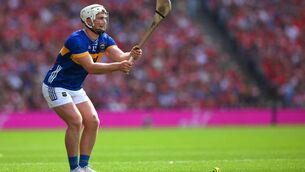Overhaul of club scene long overdue
I was fortunate enough to win a few medals and trophies in my time with Cork but often, particularly in the latter years, as a bit-part player with what is one of the strongest Cork panels of this or any other era. I left the panel last year due to frustration at my limited role and lack of opportunities.
But that is enough about that. This is not a kiss and tell about the current ins and outs of the inter-county scene. There are more than enough sages musing on mass defences and the over-reliance on the fist-pass.














